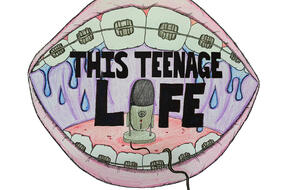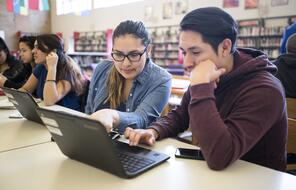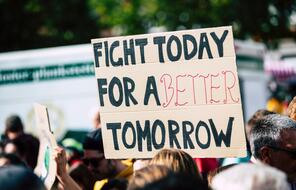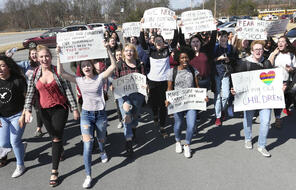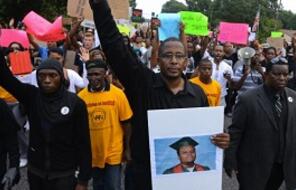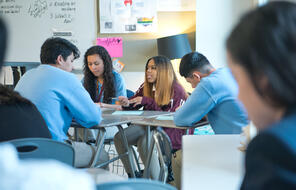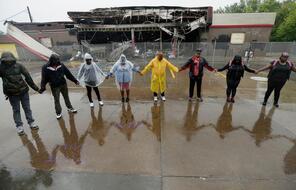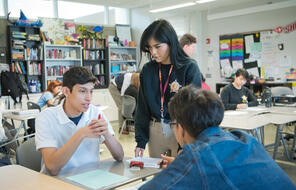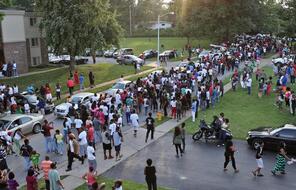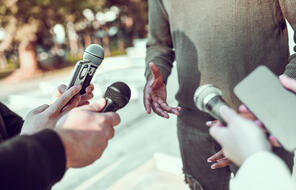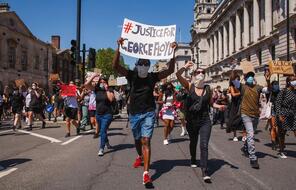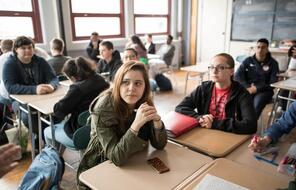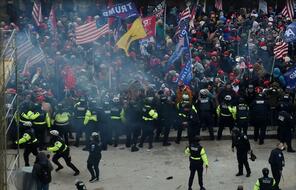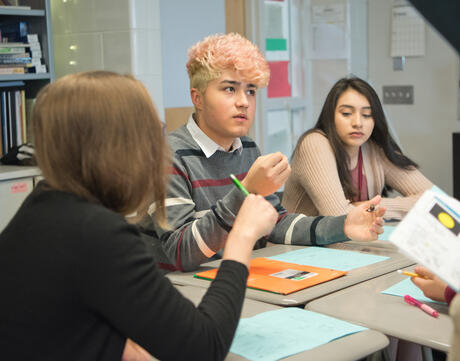
Free Press Makes Democracy Work
At a Glance
Language
English — USSubject
- Civics & Citizenship
- History
Grade
8–12Duration
One 50-min class period- Democracy & Civic Engagement
Overview
About This Lesson
This lesson explores the importance of a free press to democracy, through conversation with journalists from the United States and South Africa. The United States is a centuries-old democracy and South Africa made the transition to democracy from apartheid in the early 1990s, but both countries enshrine the right to a free press in their constitutions. “Founding fathers” of both nations emphasized the necessity of a free press: Thomas Jefferson insisted that “our liberty depends on the freedom of the press, and that cannot be limited without being lost.” 1
Nelson Mandela, South Africa’s first freely-elected President, explained that “A critical, independent and investigative press is the lifeblood of any democracy . . . . It must enjoy the protection of the constitution, so that it can protect our rights as citizens.” 2
Freedom House, an independent organization devoted to human rights and civil liberties, defines a free press as “a media environment where coverage of political news is robust, the safety of journalists is guaranteed, state intrusion in media affairs is minimal, and the press is not subject to onerous legal or economic pressures.” 3
In their 2022 assessment of international press freedom, Freedom House classified the press in the United States and South Africa as “free,” 4 but while both countries are officially committed to press freedom, both have also experienced tensions around the role of the press in their democracies.
This lesson features a podcast interview with Sam Fleming, Director of News and Programming at WBUR, a Boston public radio station; and Judith February, a columnist, political commentator, and civil society advocate in Capetown, South Africa. By listening to the podcast and discussing reflection questions, students explore the essential and reciprocal relationship between a free press and responsible citizenship. Optional extensions offer resources for developing critical media literacy in students.
- 1Thomas Jefferson in a letter to Dr. James Currie (January 28, 1786) Lipscomb & Bergh 18:ii.
- 2Address by Nelson Mandela to the International Press Institute Congress, February 14, 1994.
- 3“Press Freedom’s Dark Horizon,” Freedom House, accessed May 30, 2017
- 4“ Freedom of the Press 2016,” Freedom House, accessed May 30, 2017.
Preparing to Teach
Lesson Plan
Activities
Materials and Downloads
Free Press Makes Democracy Work
Defining Democracy
Citizen Power Makes Democracy Work
Additional Resources
Unlimited Access to Learning. More Added Every Month.
Facing History & Ourselves is designed for educators who want to help students explore identity, think critically, grow emotionally, act ethically, and participate in civic life. It’s hard work, so we’ve developed some go-to professional learning opportunities to help you along the way.
Exploring ELA Text Selection with Julia Torres
On-Demand
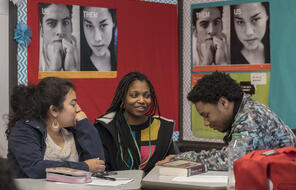
Working for Justice, Equity and Civic Agency in Our Schools: A Conversation with Clint Smith
On-Demand
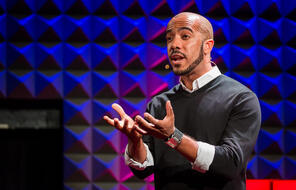
Centering Student Voices to Build Community and Agency
On-Demand
